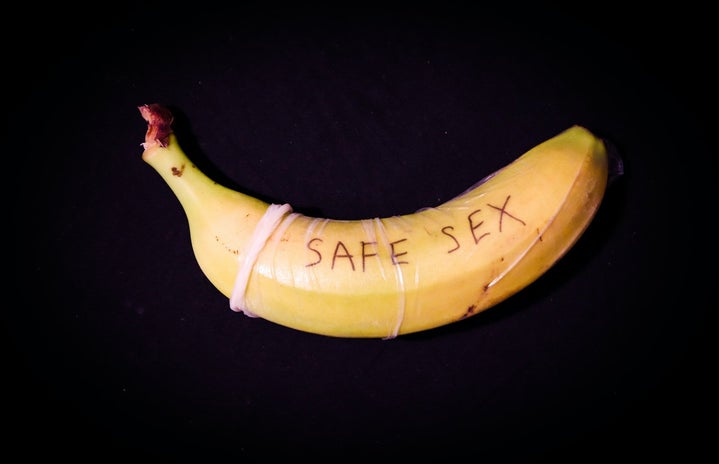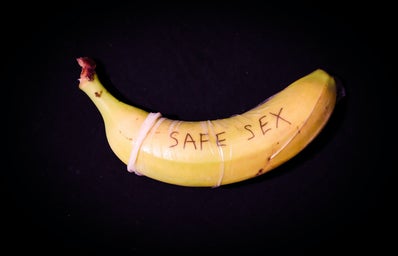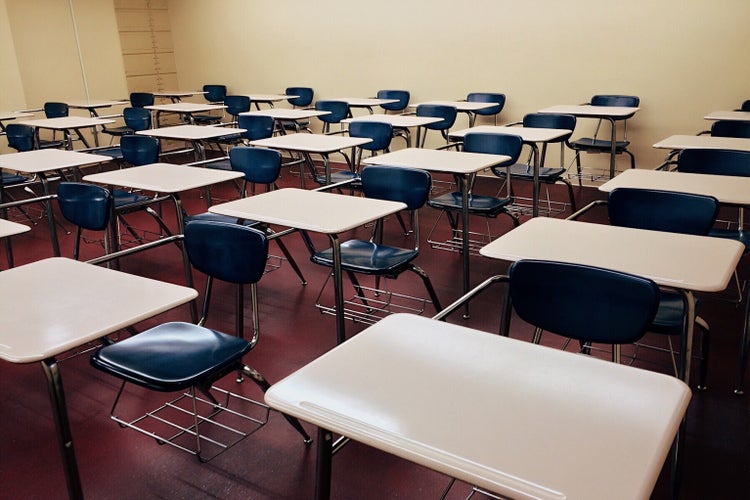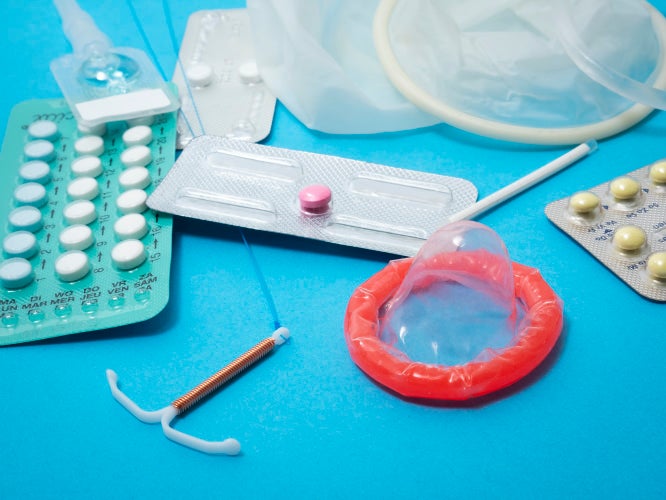I kid you not, I legitimately thought that a blow job could get you pregnant right up until the end of middle school. It makes no sense whatsoever. Our digestive system isn’t at all linked to reproduction. And yet, logic really had no place in my mind. Instead, it was replaced by the blatant scare tactics used in the American sexual health class, something that I look back on and grimace at.
I understand that there are more boundaries placed on health class than many others, largely due to its information’s “sensitive” nature. However, why is that the case? What makes learning about sex, something that the majority of people will be dealing with a bit later on, worthy of tip-toeing around? Not only is this shameful way of speaking about sex damaging in itself, but it also means that when we first start to learn about sexual health, it doesn’t feel very “healthy.”
The phrase, “don’t have sex, or you will get pregnant and die,” is a joke…. But is it really? As ridiculous as it sounds to my more adult ears, I remember being absolutely terrified of the very idea of pregnancy as a middle schooler. Of course, it isn’t as if this fear has been totally removed now, but it’s paired with the fact that I know there are ways of preventing it. In fact, if you take the correct precautions, having sex really isn’t as big a deal as my high school health teacher would have preached.
The specific phrase that I remember being shoved down our throats constantly was “abstinence is the only way to 100% prevent pregnancy”. Although there are always exceptions, in terms of the materials available to my younger self, that was technically true. But the tone in which it was issued implied that every other option would result in not only pregnancy but also all the priorly mentioned STI’s and other sexually transmitted horrors we had been “educated” on when obviously, that is not the case.
Beyond my personal experience, sex education is consistently terrible across the United States. In fact, it is only fully required to be taught in schools in 13 out of the 50 states. According to the Journal of Adolescent health, when sex ed is comprehensive, students not only feel more informed but they also make safer choices and have lower risk levels. Preaching abstinence is meant to prevent unwanted and earlier pregnancies, but by providing absolutely no other options, it actually does the opposite.
Studies have shown that states within the US that have comprehensive sex ed have much lower rates of teen pregnancies. A 2008 study within the Journal of Adolescent Health showed that teens that received sex ed that included information on contraception have a much lower risk of teen pregnancy than those who received an abstinence-only or no sex education. This shows that although many parents and teachers may worry this level of education may increase sexual activity, it actually makes it much safer.
Elizabeth Nash makes the good point that “sex education is about life skills,” or at least it should be. Unlike the majority of upper-level math classes, I feel I am much more likely to implement safety measures in terms of my own health rather than whip out some high-level calculus. Of course, sex education doesn’t and shouldn’t just include the risk of pregnancy but also how we can best take care of our bodies.
For example, there is still a large amount of stigma and shame surrounding periods, which is ridiculous considering half the population has to deal with them. Having a uterus isn’t and shouldn’t be something whispered behind closed bathroom doors. It should be taught to those who have them as well as those who do not. This includes those immature 12-year-old boys that would always go “eww” whenever traditionally female anatomy was mentioned. Perhaps if discussing our sexual well-being was normalized, this “eww” wouldn’t feel so necessary.
Sex ed also shouldn’t be so heterosexual. I would argue this applies to the majority of things in society, but it is important. Not only for the sake of LGBTQ+ individuals also knowing safe practices and how to take care of their bodies but also to normalize the idea that “penis in vagina” isn’t the only way to have sex. Although my parents have always raised me with the ideals that love isn’t a gendered thing, I didn’t understand that this could mean more than a purely emotional connection until much later.
In general, I look back on my early sex education experiences and wonder how I eventually did manage to learn the basic necessities. I give the internet, as unnecessarily graphic as it may sometimes be, full credit for this. Sex ed has been getting better, especially over the past few years. However, the fact that it’s still fairly normal to try and scare children into avoiding certain activities that are considered “unsafe” rather than deal with the reality that they probably eventually will is ridiculous and damaging.




